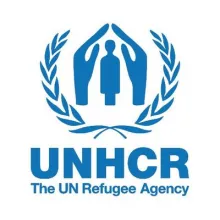The United Nations High Commissioner for Refugees (UNHCR) is mandated by the United Nations to lead and coordinate international action for the worldwide protection of refugees and the resolution of refugee problems. UNHCR’s primary purpose is to safeguard the rights and well-being of refugees.
In its efforts to achieve this objective, UNHCR strives to ensure that everyone can exercise the right to seek asylum and find safe refuge in another State and to return home voluntarily. By assisting refugees to return to their own country or to settle permanently in another country, UNHCR also seeks lasting solutions to their plight. UNHCR’s efforts are mandated by the organization’s Statute and guided by the 1951 United Nations Convention relating to the Status of Refugees and its 1967 Protocol.
International refugee law provides an essential framework of principles for UNHCR’s humanitarian activities. In support of its core activities on behalf of refugees, UNHCR’s Executive Committee and the UN General Assembly have authorized the organization’s involvement with other groups. These include former refugees who have returned to their homeland; internally displaced people; and people who are stateless or whose nationality is disputed.
UNHCR seeks to reduce situations of forced displacement by encouraging States and other institutions to create conditions which are conducive to the protection of human rights and the peaceful resolution of disputes. In pursuit of the same objective, UNHCR actively seeks to consolidate the reintegration of returning refugees in their country of origin, thereby averting the recurrence of refugee-producing situations.
UNHCR is an impartial organization, offering protection and assistance to refugees and others on the basis of their needs and irrespective of their race, religion, political opinion, or gender. In all of its activities, UNHCR pays particular attention to the needs of children and seeks to promote the equal rights of women and girls. In its efforts to protect refugees and to promote solutions to their problems.
UNHCR works in partnership with governments, regional organizations, international, and non-governmental organizations. UNHCR is committed to the principle of participation, believing that refugees and others who benefit from the organization’s activities should be consulted over decisions which affect their lives. By virtue of its activities on behalf of refugees and displaced people, UNHCR also endeavours to promote the purposes and principles of the United Nations Charter: maintaining international peace and security; developing friendly relations among nations; and encouraging respect for human rights and fundamental freedoms.
Priorities as a partner of the Global Partnership for Sustainable Development Data
With almost 90 percent of refugees living in the developing world, and more than half displaced for over four years, there is recognition by the international community that humanitarian interventions need to be complemented by a longer-term development response. This new approach is reflected in ongoing efforts to develop a global compact on refugees for adoption by the end of 2018.
Delivering such a comprehensive response requires high-quality, timely data, which was also underscored in the New York Declaration for Refugees and Migrants of September 2016. Global-level data defines the international agenda, while country-level data informs policies and helps to target aid resources appropriately. UNHCR seeks to strengthen the collection, quality, access, and use of data on forcibly displaced people, host communities, and stateless people - those who are so often left behind.
